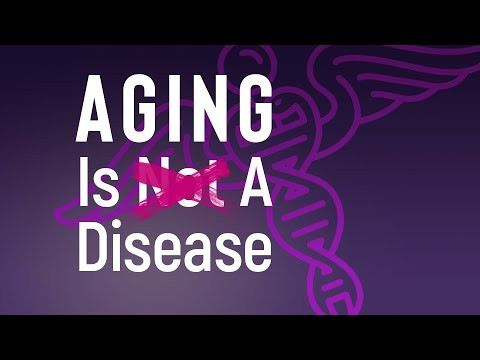What If Aging is Just a Disease?

Aging is a universal experience, but what if it were seen as something different? Imagine if aging were not just a natural part of life but a disease that could be treated or even cured. This intriguing idea has been explored by scientists and researchers, stirring thoughts about the future of human health and longevity.
Traditionally, aging has been understood as an inevitable process. People grow older, and various changes in the body and mind occur over time. However, an alternative view suggests that aging might be a disease, similar to how we view illnesses like diabetes or cancer. This perspective was first proposed by scientists who observed that the biological processes of aging closely resemble those of certain diseases.
This idea gained significant attention with the work of researchers who began studying the mechanisms of aging in the late 20th and early 21st centuries. For example, the discovery of genetic mutations and cellular changes associated with aging led some experts to question whether these changes are simply part of life or if they could be targeted for treatment.
Key Figures and Breakthrough Discoveries
Notable scientists have played crucial roles in developing this idea. One prominent figure is Dr. David Sinclair, whose research on cellular aging and longevity has been influential. His studies have shown that aging might be driven by specific cellular processes that could potentially be manipulated.
Another key figure is Dr. Judith Campisi, who has explored how cellular damage and inflammation contribute to aging. Her work suggests that if these factors could be controlled, the aging process might be slowed or reversed.
These scientists, among others, have worked in laboratories around the world, including major institutions like Harvard University and the Buck Institute for Research on Aging. Their research has involved extensive experiments with animals and cells, aiming to understand how aging works at the molecular level.
Immediate and Long-Term Outcomes
If aging were indeed considered a disease, several immediate and long-term outcomes could be anticipated. In the short term, there might be a surge in research funding and medical interest. New treatments and drugs could be developed to target the aging process, leading to potential breakthroughs in extending the human lifespan and improving quality of life.
In the long term, the impact on society could be profound. Longer life spans might lead to changes in how people plan their lives, careers, and retirements. The concept of "old age" might be redefined, and societal structures might need to adapt to accommodate an aging population that could remain healthy and active for much longer.
However, challenges would also arise. Ethical questions about how to distribute treatments and manage population growth would need to be addressed. The potential for inequality in access to new treatments could become a significant concern.
A Changing View of Health and Longevity
Considering aging as a disease might change how people think about health and longevity. If aging were treated as a disease, it could lead to a shift in focus from managing age-related conditions to preventing aging itself. This change in perspective could inspire new approaches to medicine and health care.
The idea that aging could be a disease also emphasizes the importance of ongoing research. By studying the biological processes behind aging, scientists hope to unlock new ways to improve human health and extend life. As research progresses, more information will become available about how to address the challenges and opportunities associated with this revolutionary idea.
The notion that aging might be a disease represents a fascinating shift in understanding human health and longevity. While this idea remains speculative and subject to ongoing research, it has sparked important discussions about the future of medicine and the possibilities for extending human life. As science continues to advance, the concept of aging as a disease may one day become a reality, leading to new treatments and a redefined view of what it means to grow old.





